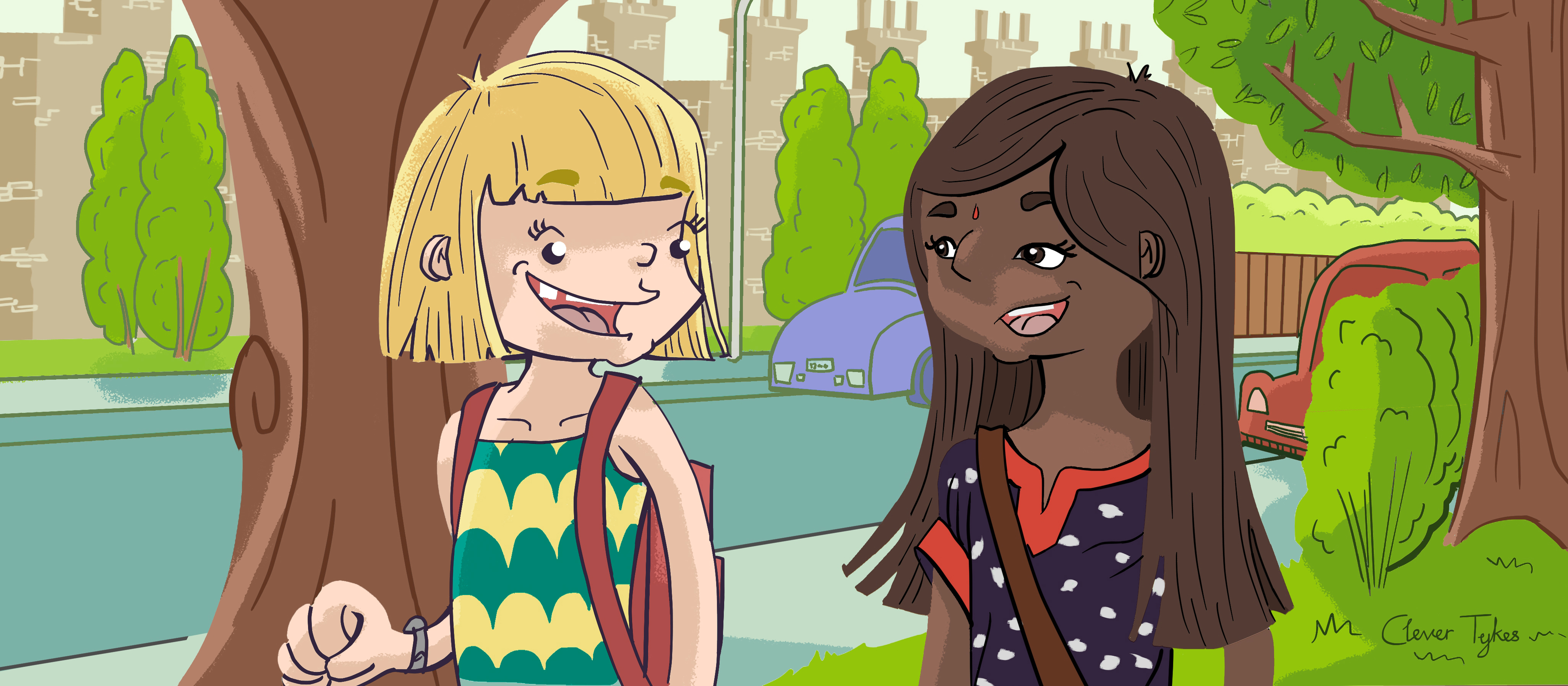
29 Sep Character education
Schooling prepares children for adulthood in numerous ways. Schooling teaches kids to follow rules, respect authority and pass exams. The overwhelming focus of the entire education system is academic performance; the ability to progress through each level of education and ultimately graduate from college or university.
There are other outcomes, of course. Students learn to interact with one another. They learn subject-specific knowledge, some of which will be useful if they choose a career in that niche. They also develop critical life skills such as time-management and communication and develop traits like perseverance. But is there enough focus on the things that tend to make people truly happy and successful in life? Elements of their character that give them ambition, drive, resilience and personability? Let’s take a look at what character education is and how we can use it to help kids develop.
Character education
There has always been an emphasis on ‘academic’ ability; how well children can remember facts and figures, how well they can articulate answers in writing and how to carry out mathematical or scientific processes. However, the world is changing rapidly. Digital technology, virtual reality, and now artificial intelligence are putting increased emphasis on a different range of skills and attributes.
The challenge facing our educators and the system is that it’s almost impossible to add these elements to our curriculum at the rate required. Furthermore, which subjects do we remove in place of the raft of technological skills we should be adopting? Unfortunately, we’d almost definitely see the arts subjects make way, which would be a false economy.
Without the ability to make rapid changes to the curriculum, we must focus on the principle of helping children ‘learn to learn’. This, along with the development of a series of character traits will best prepare children for their adult lives in uncertain times.
What is character education?
Character education is the development of a range of traits valuable to people in life both in and outside the world of work. Some of these traits include the very fundamental traits of good human beings such as honesty and kindness, many of which should be embedded in children from a very young age. More complex traits include resourcefulness, endeavour, leadership, teamwork and a willingness to fail – these are harder to develop, especially in some children.
Therefore, we could say that character education helps children be ‘better’ people, but I believe it should make them more ‘useful’ people too. Developing a person who is trustworthy and hardworking, who also has the ability to overcome challenges, think and behave innovatively and inspire others to work with them is a truly powerful combination.
Surely this should be the number one priority for all schools and institutions in this day and age?
But there’s a problem.
Integrating character development with a traditional school curriculum represents various challenges due to the difficulty of measuring attainment, progress and the fact that academic subjects are given top priority. These are the challenges facing a range of subjects like PSHE, some arts subjects and those developing ‘soft skills’. Character education has, therefore, remained a fringe topic amongst the majority of schools and falls in and out of vogue.
How can schools deliver character education?
It is unrealistic to expect schools to adopt character education as discreet lessons in their already full curriculum. In fact, running intensive character education modules over the course of a half-term has limited benefit to children, as these traits must be developed and cultivated over their entire childhood.
Rather, parents and teachers must be aware of the skills and character traits required of children and build in exercises across the curriculum to aid their development. There are several institutions devoted to the delivery of character education that provide resources and guidance for teachers in this area. There are related subjects that can be used for character education:
1. Enterprise education
Particularly at a young age, (primary or elementary school) enterprise education is all about developing key attributes like positivity, resilience and creativity. We believe that many of life’s most important characteristics can be described as ‘enterprising’. That’s why we developed the Clever Tykes enterprise education resources.
2. PSHE, citizenship or health
Personal, social and health (and economic) education, often referred to as simply “health”, in the US as a wide-ranging topic that falls in and out of prominence in the education system. The remit of PSHE or health is broad; teaching kids about everything in life outside the academic subjects they’re taught. Which is pretty much all of real life. It’s possible that topics covered in this group of subject could relate to exploring how the real world works and the characteristics one needs to be successful.
3. SMSC Education
This stands for “spiritual, moral, social and cultural education” and is aimed at giving children a compass aligned with values. This was a British government initiative, promoting “British values”, but translates to most countries as something closer to religious studies. Developing an awareness of those in your society promotes empathy and can help someone grow up with a better sense of belonging and a duty to serve their community.
4. Cross-curricular or school ethos
Perhaps the most effective way to explore character education is to embed it into everything the school does. Schools should have a set of values that all students know, understand and can embody every day. This means that developing these key character traits isn’t seen as traditional subject that gets marked; it’s something that runs through the culture of the school.
School terms can focus on one character attribute at a time. Our personal favourites (and there’s more info about each one in the link) are:
Whilst society is also evolving, the sheer pace of technological development we’re seeing in the 21st century is genuinely creating significant challenges to the existing school system. Whilst character education is absolutely nothing new, now is the time when it, or something with similar aims, must be widely promoted amongst all schools. A purely academic focus is becoming increasingly obsolete and is failing to prepare children sufficiently for the lives ahead of them. The frustration is that we have the resources and time available to rectify this problem.
If you’re a parent or teacher, especially of primary school children who are more able to develop these you must think creatively about how to best inspire children in the key traits they may not be currently developing.





